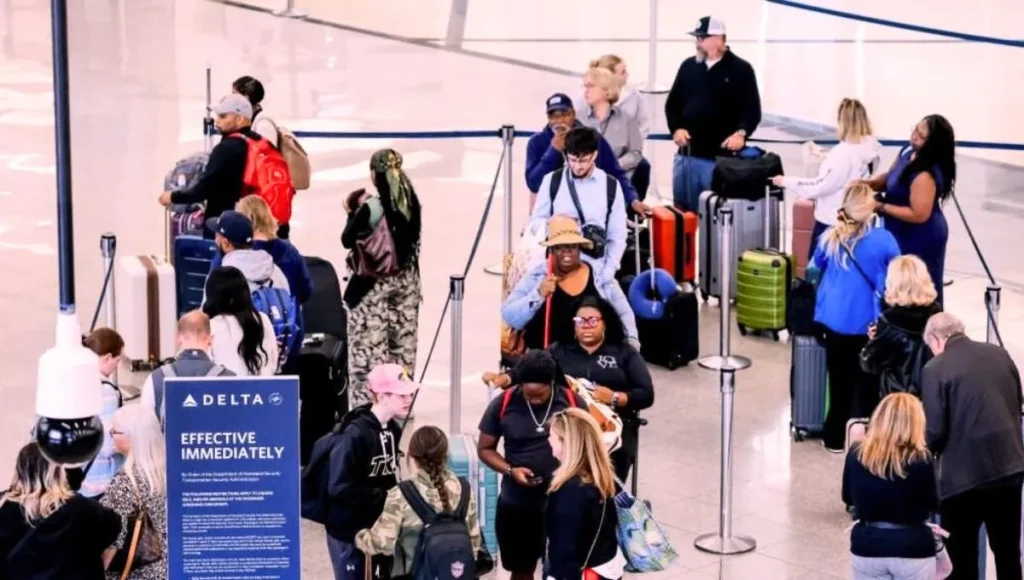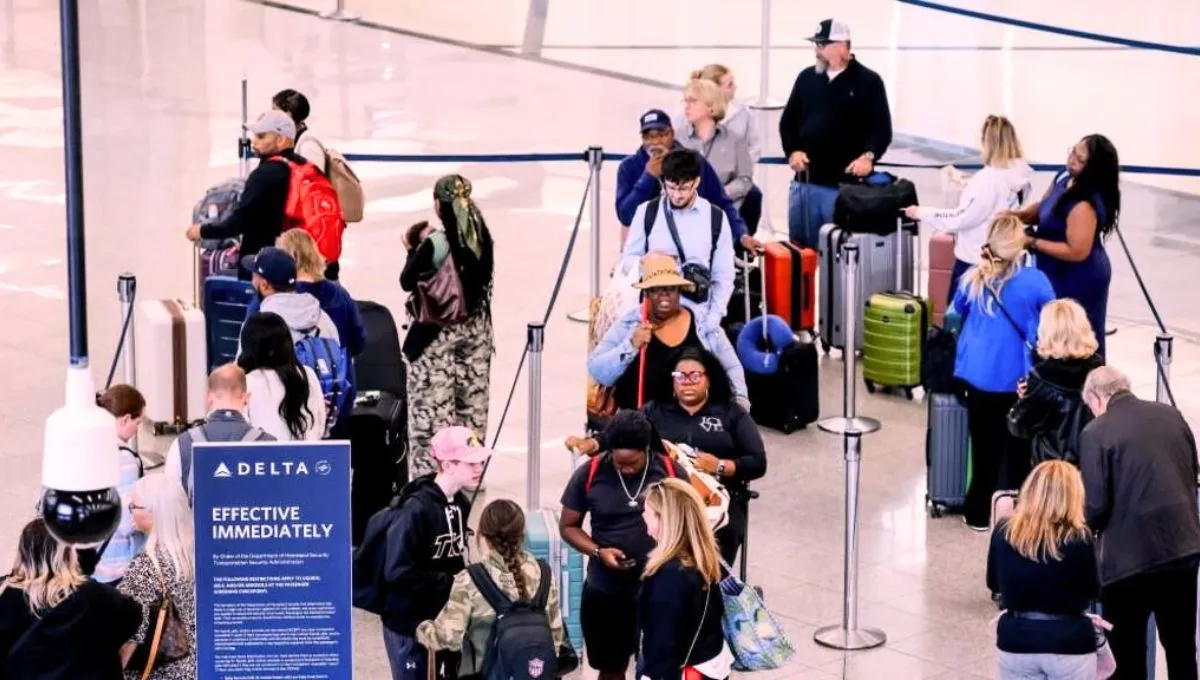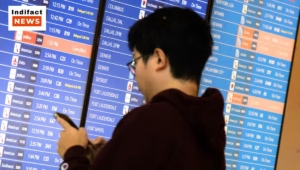
US flight cancellations during shutdown
In a day that tested both patience and logistics, US flight cancellations during shutdown or delayed, leaving thousands of passengers stranded at major airports. The cancellations came as airlines scrambled to reduce air traffic and streamline operations in response to the ongoing federal government shutdown that has severely strained aviation resources.

From New York’s JFK Airport to Los Angeles International, long lines, delayed departures, and frustrated passengers became the norm as airline staff worked to manage limited resources. According to flight-tracking platform FlightAware, more than 850 flights were cancelled nationwide, with delays affecting nearly 2,000 additional departures.
Why the Shutdown Hit Airlines So Hard
The US flight cancellations during shutdown latest federal shutdown has thrown America’s aviation system into chaos. The shutdown, which led to the temporary suspension of non-essential government operations, has hit the Federal Aviation Administration (FAA) particularly hard.
Many air traffic controllers, maintenance inspectors, and safety personnel are either working without pay or unavailable, leading to bottlenecks in critical airport functions.
An airline industry analyst put it bluntly:
“Air travel is one of the most interdependent systems in the world. When one link in the chain – like the FAA – weakens, the entire network feels it instantly.”
With reduced staffing, airlines were forced to cut down on scheduled flights to avoid overwhelming limited air traffic control capacity and ensure safety standards were not compromised.
Airlines Respond – ‘Safety Comes First’
In official statements, US flight cancellations during shutdown major carriers including American Airlines, Delta, United, and Southwest confirmed they were reducing operations to align with FAA capacity limits.

An American Airlines spokesperson said:
“Our priority is passenger safety and operational integrity. With staffing constraints impacting the national airspace, we’ve made the difficult decision to proactively cancel select flights.”
Delta Airlines echoed the sentiment, adding that the shutdown’s ripple effects were “challenging but manageable with proper planning.”
Meanwhile, low-cost carriers like Spirit Airlines and Frontier which operate on tight turnaround times were hit particularly hard, with dozens of their short-haul flights cancelled due to crew scheduling conflicts and ATC delays.
Travelers Frustrated, Airports Overwhelmed
US flight cancellations during shutdown at airports across the country, passengers vented their frustrations as they queued for rebookings or refunds. Social media lit up with stories of missed connections, long waits, and confusion over which flights were operational.
One traveler at Atlanta’s Hartsfield-Jackson Airport described the situation as “organized chaos,” adding:
“Everyone’s doing their best, but no one really knows what’s going on. It’s like the system’s on autopilot.”
To ease congestion, several airports deployed additional staff and volunteers to assist stranded travelers. Airlines also issued travel waivers, allowing passengers to rebook without penalty or claim full refunds for affected routes.
Economic Ripples – A Costly Grounding
Beyond inconvenience, the flight cancellations carry a heavy financial toll. Industry estimates suggest that the US aviation sector loses nearly $100 million per day during severe operational disruptions.

Tourism and hospitality sectors are also feeling the strain, as hotels face last-minute cancellations and business travelers reschedule key meetings. Analysts warn that if the shutdown continues, the economic fallout could rival that of previous crises, including the 2019 government shutdown which disrupted 800,000 federal workers.
What’s Next – A System Under Pressure
While negotiations in Washington continue, the skies remain uncertain. Airlines have indicated they’ll continue to operate at reduced capacity until FAA staffing normalizes.
Transportation experts stress that safety must remain the guiding principle – even if it means more cancellations ahead.
“It’s a reminder,” one former FAA official noted, “that America’s air network is an intricate web held together by people – and when those people can’t work, the system can’t fly.”
As the shutdown stretches on, passengers are advised to check flight status frequently, opt for flexible bookings, and arrive early at airports.
For now, the message from both airlines and regulators is clear: patience will be the only boarding pass that works.

